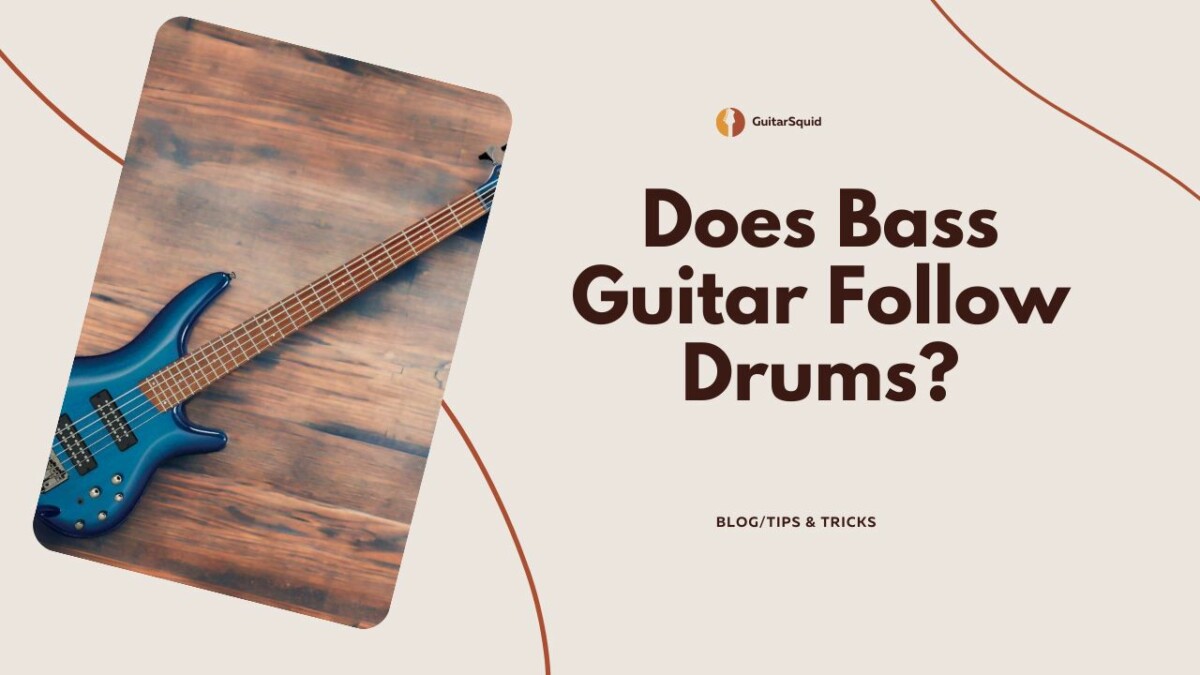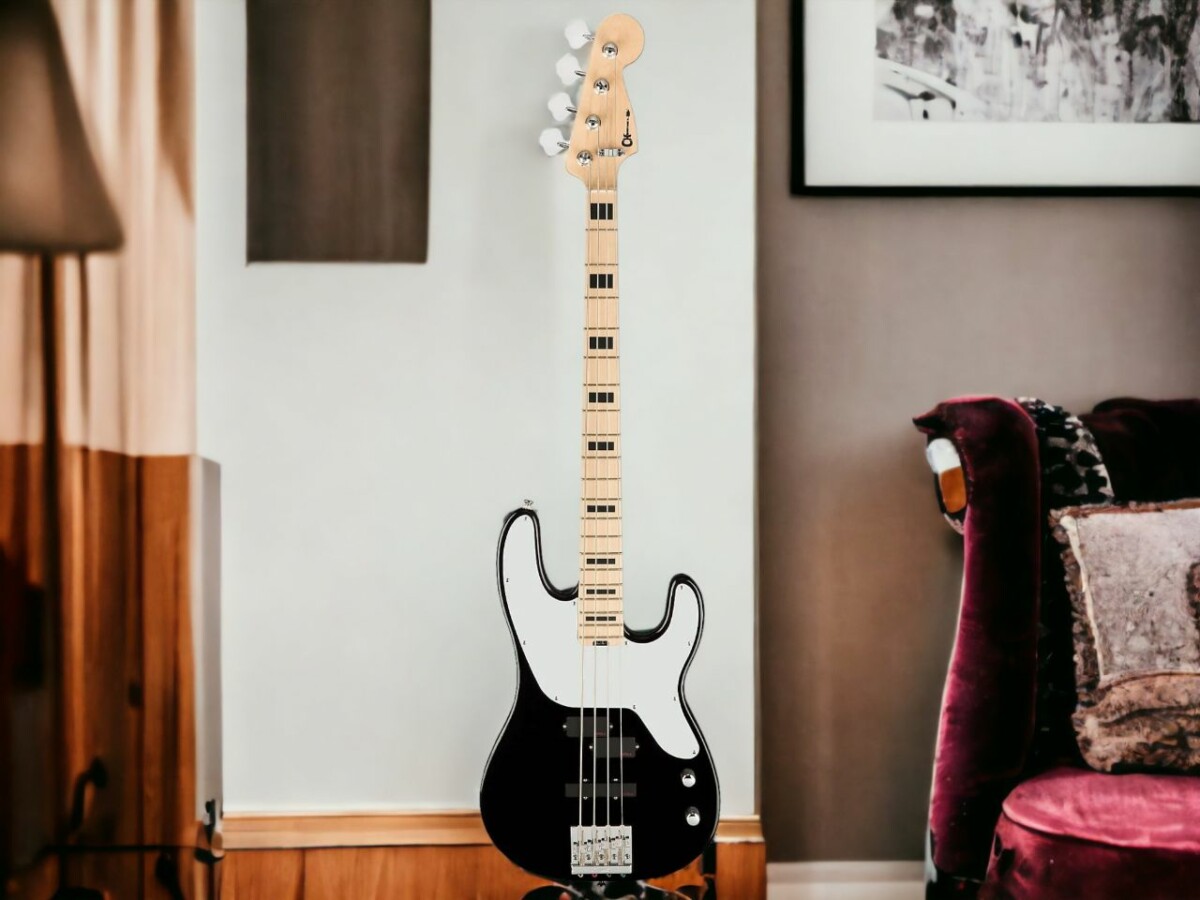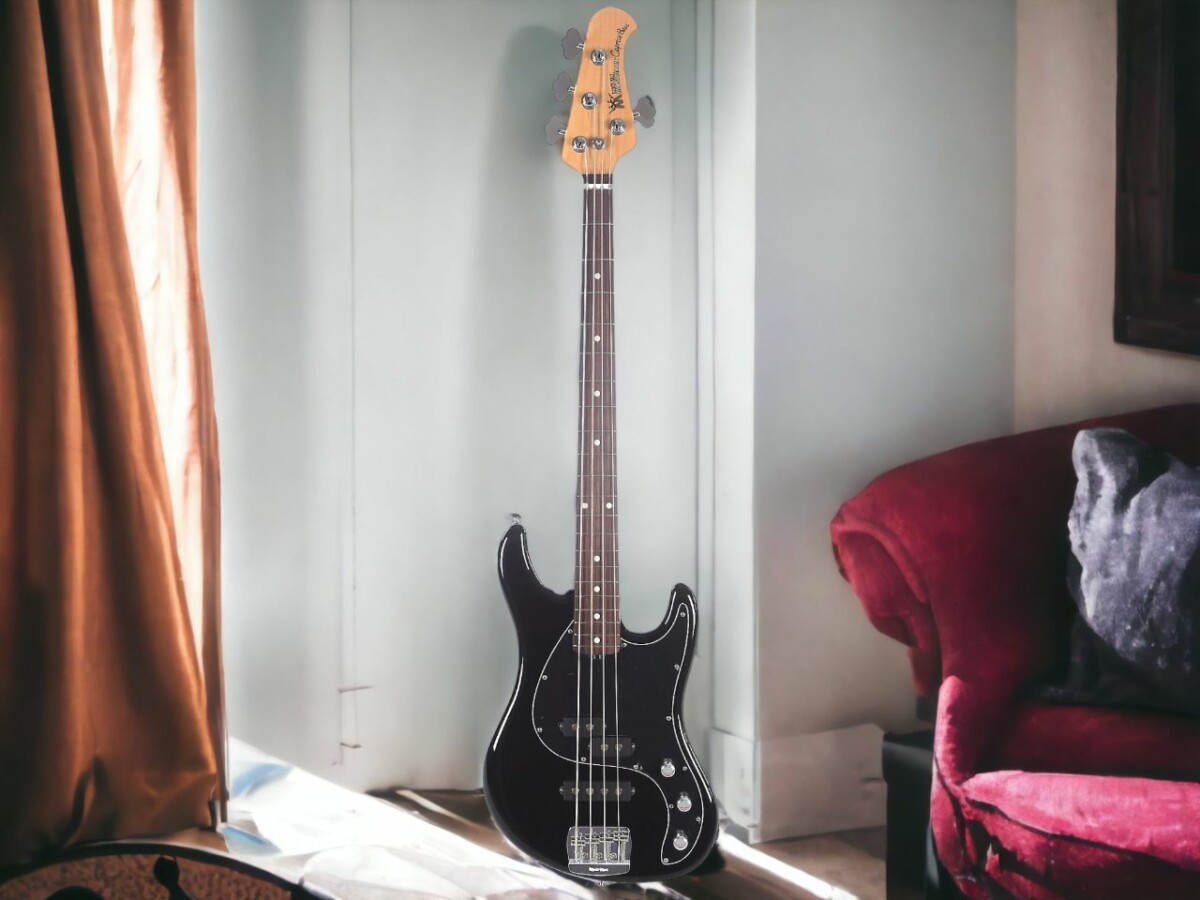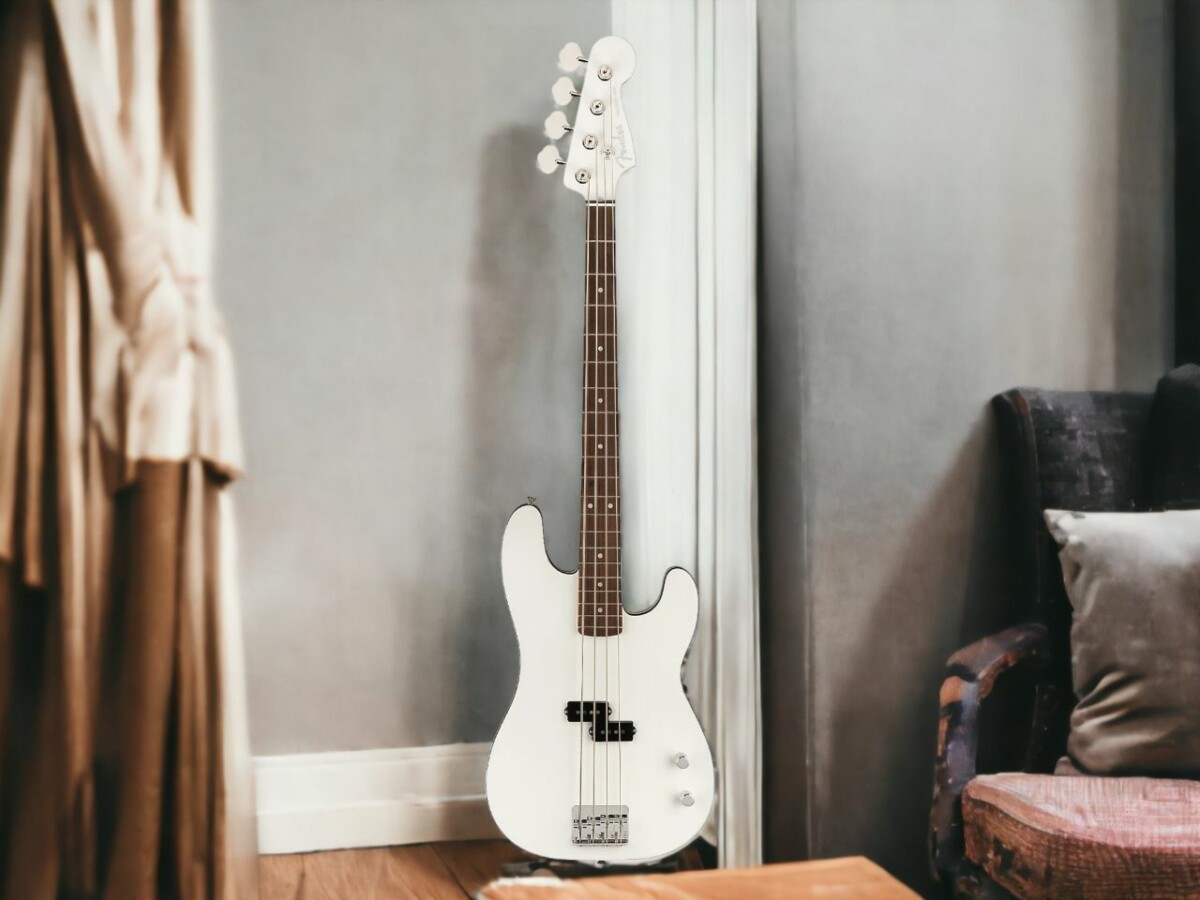So, you’re jamming out on your bass guitar, trying to keep pace with the beat of the drums.
But, does the bass always have to be the sidekick to the drums? Well, it’s not really a black and white situation.
Let’s delve into the intricate tango that exists between the bass and drums. We’ll unravel how the genre of music and your own unique style can flip this dynamic on its head.
Whether you’re just starting out or you’ve got some solid chops under your belt, this deep dive will give you a richer understanding of your place within the musical landscape.
Ready to get your groove on? Let’s dive in.
The Role of the Bass Guitar in Music Composition
The bass guitar usually vibes with the kick drum to lay down the rhythm and set the heartbeat of a track. It’s super important for bass players and drummers to gel well and lend an ear to each other to keep their sound tight and in sync.
Sure, there are times they can sprinkle in some independence or go against the grain for adding an edgy touch. But at its core, a tight bond between the bass and drums is a hallmark of many music genres.
You might reckon the bass guitar is just there to keep the beat, but let’s set the record straight – its role is way more crucial in crafting the DNA of a song. Those deep, low-frequency vibes? They’re laying the groundwork, adding depth to the melody. When you’re dealing with crazy, intricate arrangements, your bass lines become a musical lighthouse, guiding the rest of the band. It’s kinda like walking a tightrope – too much bass, and you’re stealing the melody’s thunder; too little, and the song flatlines.
As a bass player, you’re like the behind-the-scenes genius, subtly directing your audience’s attention without them even realizing it. Being a pro at the bass isn’t just about knowing where to stick your fingers on the fretboard, it’s about grasping the delicate ballet of rhythm and melody, harmony and discord. It’s an art form, really.
The Simplicity of Bass Guitar for Beginners
Dipping your toes into the bass guitar scene, you’ll immediately notice how beginner-friendly it really is. How bass guitar strings are made plays a significant role in its unique sound and feel. Thanks to the fewer strings and the lack of mind-boggling chords, it’s a solid first choice for any budding musician. This cool instrument’s design actually helps you get a grip on the basics of music theory. Before you know it, you’ll be nailing the rhythm and timing, two key ingredients in setting the vibe of any song.
As you dive deeper into the world of bass, you’ll start to see how pivotal its role is in anchoring the harmony and laying down a strong base for the melodies. But don’t get it twisted, just because it’s simple doesn’t mean it’s not challenging. To truly master the bass, you need precision, agility, and a sharp ear for the nuances in tone and pitch.
Your bass journey will be a mix of skill, theory, and personal flair, always nudging you to push past the beginner stage. But the best part? The sheer thrill of making your own music. It’s not just about learning the notes, it’s about making them your own.
Progressing Beyond the Basics: Challenges and Complexities
Once you’ve nailed down the basic stuff, perhaps you’ve considered expanding your collection. You might have heard of Cort bass guitars or questioned, are Ibanez bass guitars any good? As you progress, brand and instrument quality become more important, and you start to research more about different types. Beyond that, challenges include mastering scales and modes, training your ears, diving into complex beats, and adding some pizzazz with techniques like slapping and tapping.
Here’s what’s up:
- Getting the hang of scales and modes: You gotta get really good at a bunch of scales and modes. They’re like the blueprint for your bass lines.
- Training your ears: You need to be able to pick up bass lines by ear and reproduce them. Trust me, that’s a game-changer.
- Diving into complex beats: Things can get tricky when you start messing with advanced syncopation, odd time signatures, and polyrhythms.
- Adding some pizzazz with techniques: Stuff like slapping, tapping, and palm-muting can seriously spice up your performance.
But, hey, remember this golden rule – challenges are just stepping stones to greatness. So, take them head-on and watch your music reach new heights!
The ‘Bass Vs. Guitar’ Debate: an Overview
So, you’ve stumbled upon the age-old ‘Bass Vs. Guitar’ showdown, huh? Well, you’re about to dive into a sea of opinions shaped by individual likes, musical prowess, and of course, genre preference.
It’s not uncommon to hear folks say that the bass is an easier pick for beginners because it has fewer strings and less complex techniques. But here’s the catch – as you dive deeper, you’ll realize that both these instruments have their own beasts to tame.
The bassist, you see, is the one who lays down the rhythmic backbone of a song, demanding serious precision and timing. On the other hand, the guitarist usually gets the spotlight carrying the melody. So, the choice between the two really boils down to what you want out of your musical journey.
This debate is a hot topic especially among newbies. But here’s a little secret – as you get better and start focusing more on the music itself, this debate loses its steam. In the end, it doesn’t matter if you’re a bassist or a guitarist. What truly counts is your dedication, skill development, and a solid grasp of music theory.
The Path to Mastery: Bass Guitar and Drums
So, you’re on this journey to totally nail the bass guitar and drums, huh? Just a heads up, it’s going to take a bunch of patience and sticking to a solid practice routine. Here’s the lowdown on what you’ll need to conquer:
- Get the rhythm down: You gotta vibe with your drummer’s beat. When your bass lines are in sync, you’ll be a rhythm machine. It’s all about that tight rhythm section, you know?
- Be all ears and talk it out: Tune into your drummer’s patterns and fills. Don’t shy away from any feedback or teaming up. It’s all part of the game.
- Dive into music theory: Get your head around chord progressions and scales. It’s like learning the language of music. It’ll help you improvise and write your own stuff like a boss.
- Keep the momentum going: Consistency is your ticket to success. So, make it a point to work on your timing, groove, and scales every single day.




